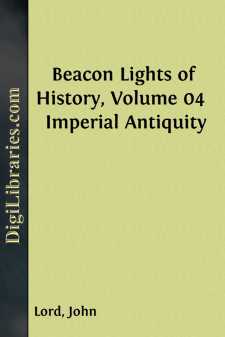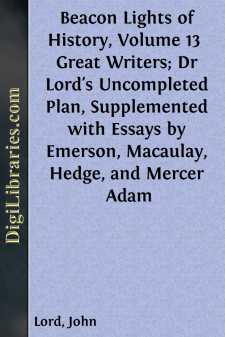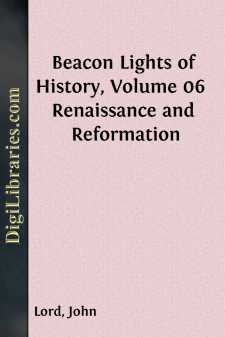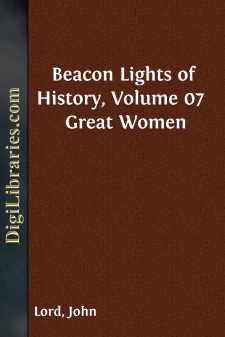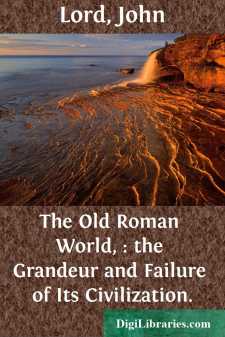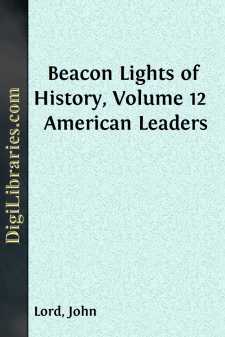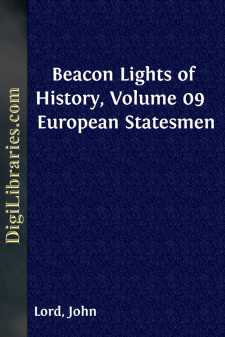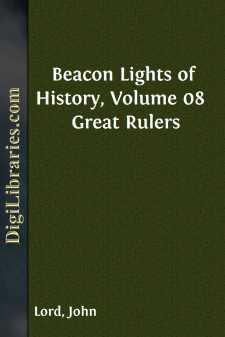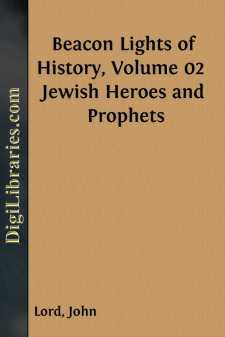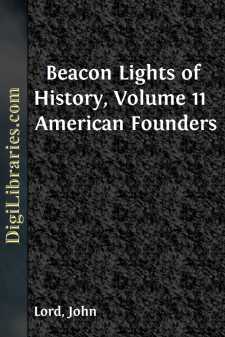Categories
- Antiques & Collectibles 13
- Architecture 36
- Art 48
- Bibles 22
- Biography & Autobiography 816
- Body, Mind & Spirit 145
- Business & Economics 28
- Children's Books 17
- Children's Fiction 14
- Computers 4
- Cooking 94
- Crafts & Hobbies 4
- Drama 346
- Education 58
- Family & Relationships 59
- Fiction 11834
- Foreign Language Study 3
- Games 19
- Gardening 17
- Health & Fitness 34
- History 1378
- House & Home 1
- Humor 147
- Juvenile Fiction 1873
- Juvenile Nonfiction 202
- Language Arts & Disciplines 89
- Law 16
- Literary Collections 686
- Literary Criticism 179
- Mathematics 13
- Medical 41
- Music 40
- Nature 179
- Non-Classifiable 1768
- Performing Arts 7
- Periodicals 1453
- Philosophy 66
- Photography 2
- Poetry 897
- Political Science 203
- Psychology 45
- Reference 154
- Religion 516
- Science 126
- Self-Help 85
- Social Science 82
- Sports & Recreation 34
- Study Aids 3
- Technology & Engineering 59
- Transportation 23
- Travel 463
- True Crime 29
John Lord
John Lord was a 19th-century American historian, lecturer, and author, best known for his series "Beacon Lights of History," which covers significant figures and events from ancient to modern times. Born on September 10, 1810, in Portsmouth, New Hampshire, he was educated at Dartmouth College and later became a prominent lecturer on historical and literary subjects. His works are noted for their engaging narrative style and focus on moral and religious themes.
Author's Books:
Sort by:
by:
John Lord
CHRYSOSTOM. A.D. 347-407. SACRED ELOQUENCE. The first great moral force, after martyrdom, which aroused the degenerate people of the old Roman world from the torpor and egotism and sensuality which were preparing the way for violence and ruin, was the Christian pulpit. Sacred eloquence, then, as impersonated in Chrysostom, "the golden-mouthed," will be the subject of this Lecture, for it was by...
more...
by:
John Lord
1795-1881. CRITICISM AND BIOGRAPHY. The now famous biography of Thomas Carlyle, by Mr. Froude, shed a new light on the eccentric Scotch essayist, and in some respects changed the impressions produced by his own "Reminiscences" and the Letters of his wife. It is with the aid of those two brilliant and interesting volumes on Carlyle's "Earlier Life" and "Life in London,"...
more...
by:
John Lord
MICHAEL ANGELO. A.D. 1475-1564. THE REVIVAL OF ART. Michael Angelo Buonarroti--one of the Great Lights of the new civilization--may stand as the most fitting representative of reviving art in Europe; also as an illustrious example of those virtues which dignify intellectual pre-eminence. He was superior, in all that is sterling and grand in character, to any man of his age,--certainly in Italy;...
more...
by:
John Lord
BEACON LIGHTS OF HISTORY HÉLOÏSE. * * * * * A.D. 1101-1164. LOVE. When Adam and Eve were expelled from Paradise, they yet found one flower, wherever they wandered, blooming in perpetual beauty. This flower represents a great certitude, without which few would be happy,—subtile, mysterious, inexplicable,—a great boon recognized alike by poets and moralists, Pagan and Christian; yea, identified not...
more...
by:
John Lord
I propose to describe the Greatness and the Misery of the old Roman world; nor is there any thing in history more suggestive and instructive. A little city, founded by robbers on the banks of the Tiber, rises gradually into importance, although the great cities of the East are scarcely conscious of its existence. Its early struggles simply arrest the attention, and excite the jealousy, of the...
more...
by:
John Lord
1782-1850. THE SLAVERY QUESTION. The extraordinary abilities of John C. Calhoun, the great influence he exerted as the representative of Southern interests in the National Legislature, and especially his connection with the Slavery Question, make it necessary to include him among the statesmen who, for evil or good, have powerfully affected the destinies of the United States. He is a great historical...
more...
by:
John Lord
CHATEAUBRIAND. 1768-1848. THE RESTORATION AND FALL OF THE BOURBONS. In this lecture I wish to treat of the restoration of the Bourbons, and of the counter-revolution in France. On the fall of Napoleon, the Prussian king and the Austrian emperor, under the predominating influence of Metternich, in restoring the Bourbons were averse to constitutional checks. They wanted nothing less than absolute...
more...
by:
John Lord
CARDINAL DE RICHELIEU. A. D. 1585-1642. ABSOLUTISM. Cardinal de Richelieu is an illustration of what can be done for the prosperity and elevation of a country by a man whom we personally abhor, and whose character is stained by glaring defects and vices. If there was a statesman in French history who was pre-eminently unscrupulous, selfish, tyrannical, and cruel, that statesman was the able and wily...
more...
by:
John Lord
When we pass from David's personal character to the services he rendered, how exalted his record! He laid the foundation of the prosperity of his nation. Where would have been the glories of Solomon but for the genius and deeds of David? But more than any material greatness are the imperishable lyrics he bequeathed to all ages and nations, in which are unfolded the varied experiences of a good man...
more...
by:
John Lord
THE AMERICAN CONSTITUTION. There is one man in the political history of the United States whom Daniel Webster regarded as his intellectual superior. And this man was Alexander Hamilton; not so great a lawyer or orator as Webster, not so broad and experienced a statesman, but a more original genius, who gave shape to existing political institutions. And he rendered transcendent services at a great...
more...


